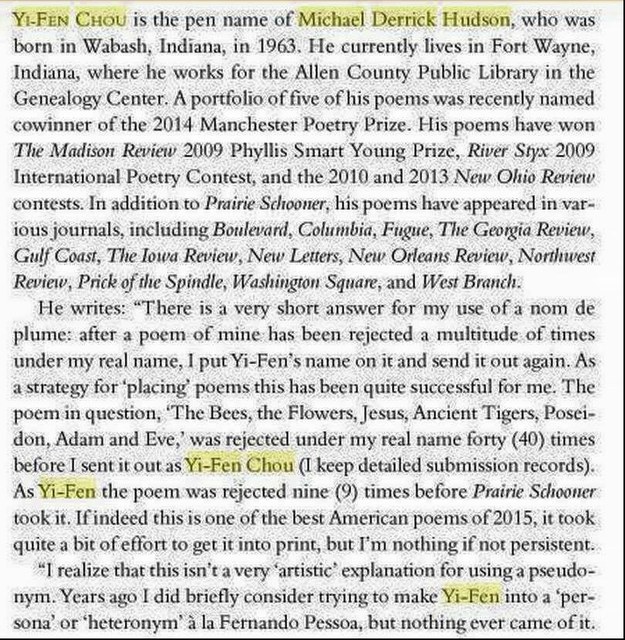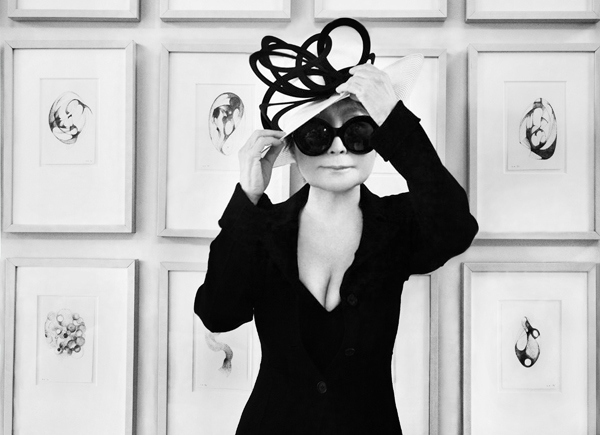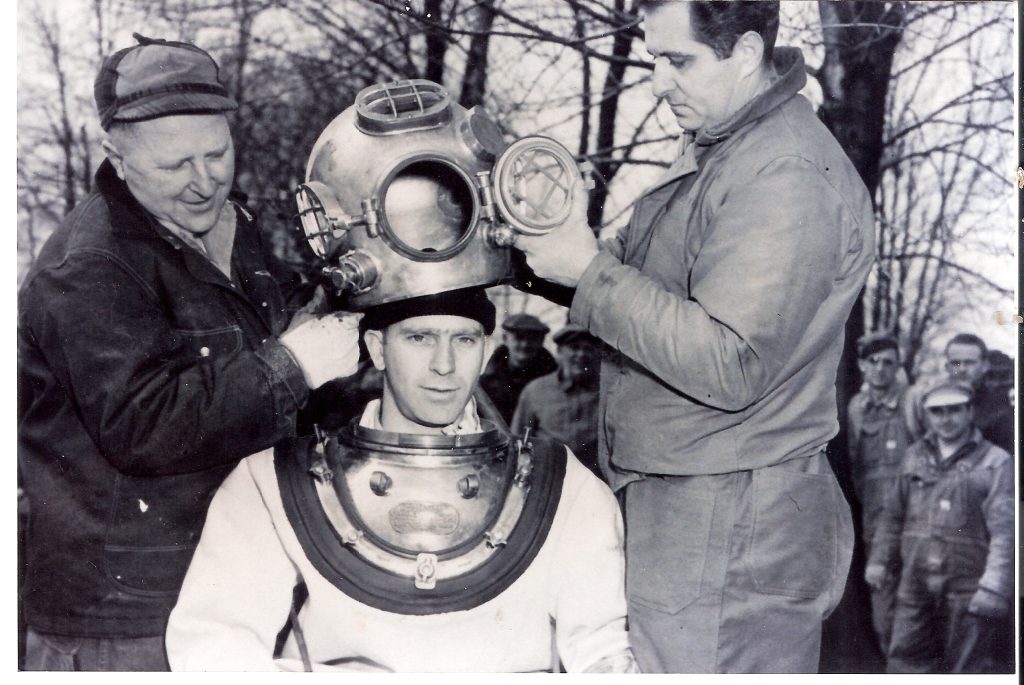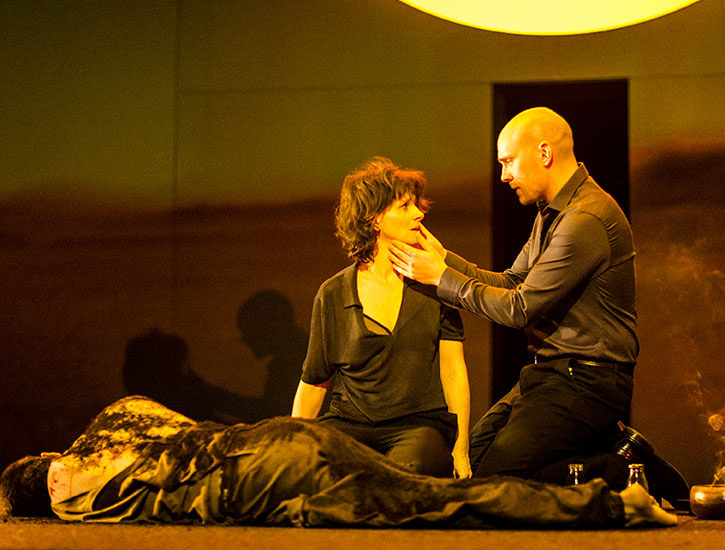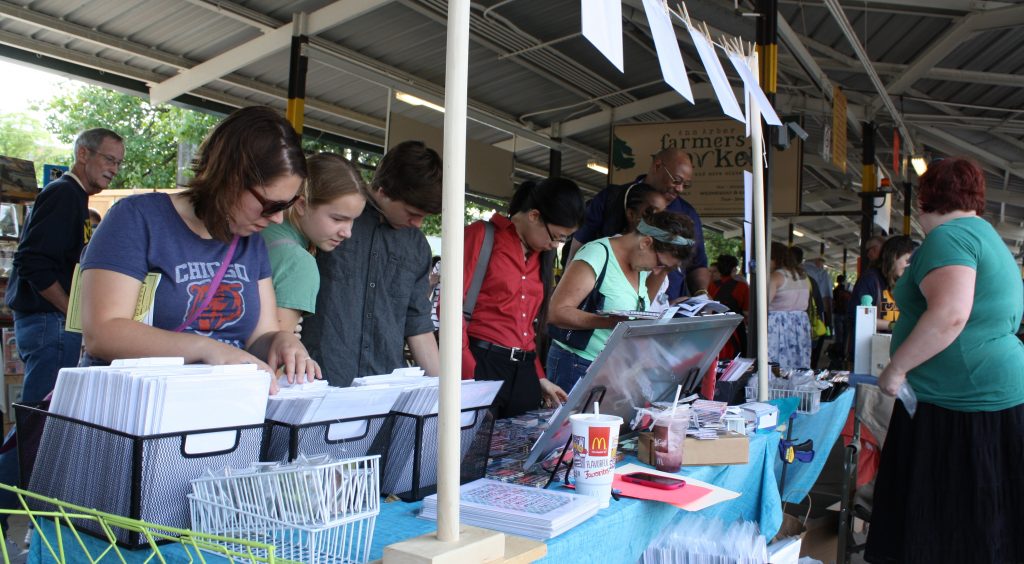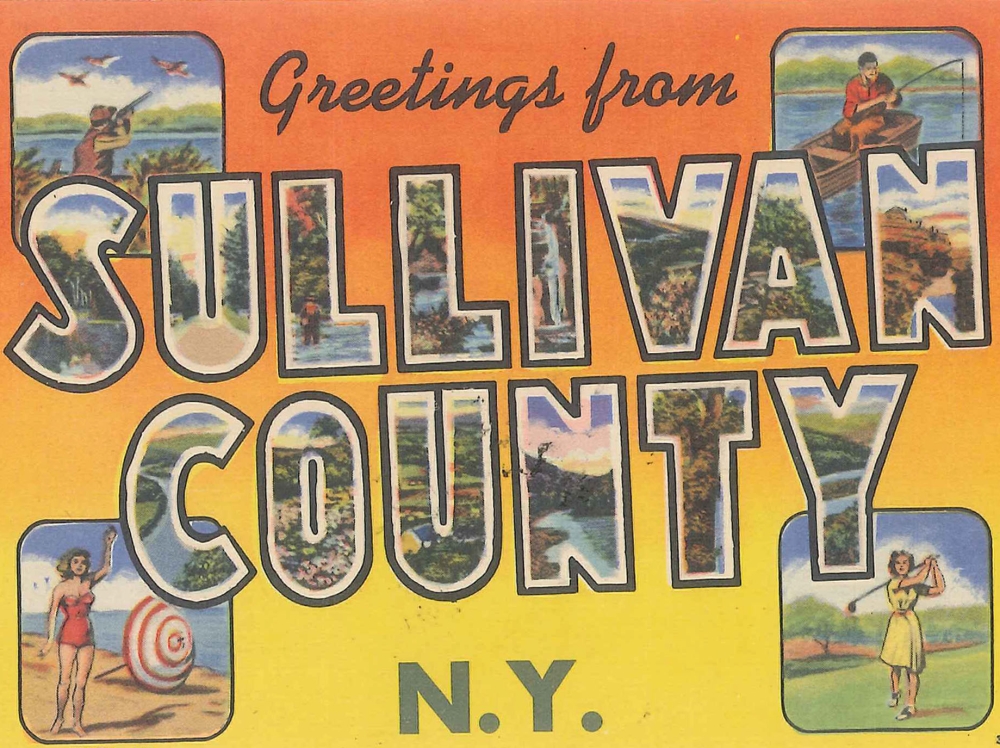A Field Guide to the Yi-Fen Chou Case and Identity Politics in the Arts
Good poetry is good poetry because of who wrote it. If you want to get fancy about it, it’s an index of the culturally defined experiences of the author and the ways that author has taken agency within them, has interacted with his or her own received cultural and historical condition. Poetry isn’t good simply because it has kickass slant rhyme or wicked trippy imagery but because it employs those techniques mimetically to engage heritages and traditions that constitute the wisdom—and oppressions—of most acute concern at a given historical moment.
A Field Guide to the Yi-Fen Chou Case and Identity Politics in the Arts Read More »

